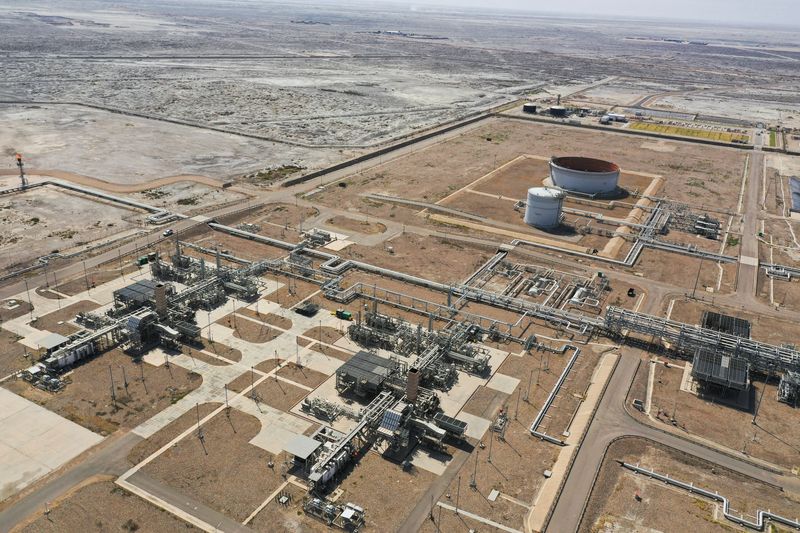By Alex Lawler
LONDON (Reuters) -Oil edged lower on Tuesday as easing concern about supply risks and a rapidly escalating conflict after Iran’s weekend attack on Israel offset data showing China’s economy grew faster than expected in the first quarter.
Also weighing was stronger-than-expected U.S. retail sales for March that further reinforced expectations the U.S. Federal Reserve is unlikely to rush to cut interest rates, a scenario that dampens the prospects for oil demand.
futures for June delivery fell 26 cents, or 0.3%, to $89.84 a barrel by 0935 GMT. for May slipped 20 cents, or 0.2%, to $85.21.
“The balancing act between sticky inflation, a hesitant Fed and the gradual move towards a full-blown regional conflict keeps oil…in its range,” said Tamas Varga of oil broker PVM.
“Material disruption to oil production, supply or shipping must take place to approach the $100 a barrel milestone. Currently such a development appears implausible.”
Concern that Iran would respond to the strike on its embassy compound in Damascus helped send Brent on Friday to $92.18, the highest since October.
Prices, though, fell on Monday after Iran’s attack on Israel proved to be less damaging than anticipated, easing concerns of a quickly intensifying conflict that could disrupt supply.
“As the risk to supply is waning and a military response from Israel looks less likely as more time passes, prices are holding steady,” said Rystad Energy’s Jorge León. “Tensions are high, and either party’s next moves are hard to predict.”

Iran will respond to any action against its interests, President Ebrahim Raisi said on Tuesday, according to the Iranian Student News Agency, a day after Israel warned it will respond to Tehran’s weekend drone and missile attack.
Iran produces more than 3 million barrels per day of crude oil as a major producer within the Organization of the Petroleum Exporting Countries (OPEC).

